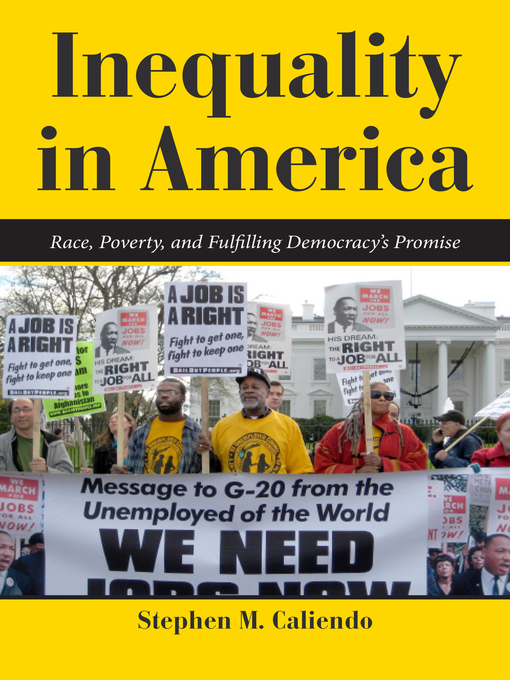Why does inequality have such a hold on American society and public policy? And what can we, as citizens, do about it? Inequality in America takes an in-depth look at individual-level and systemic inequality, focusing in particular on race, poverty, and gender, across a wide range of issues from housing and education to crime, employment and health. Caliendo shows how individual-level prejudice and systemic inequality are interrelated, how individual beliefs and attitudes can affect public opinion and lawmakers' policy solutions and how systemic barriers to advancement as a result of these policies then contribute to individual perceptions, creating a cycle of disadvantage and advantage that can be difficult to break, though not impossible.
Feature boxes throughout the book offer insight into key public figures who have worked to combat inequality and suggestions for individual action. Concise and written in an accessible manner, Inequality in America paves the way for students to think critically about the effects of the attitudes, behaviors and structures of inequality.
- Try something different
- New eBook additions
- Available now
- Most popular
- New kids additions
- New teen additions
- See all ebooks collections
- Try something different
- New audiobook additions
- Available now
- Most popular
- New kids additions
- New teen additions
- Always Available Audio!
- See all audiobooks collections
- Cooking & Food
- Home & Garden
- Health & Fitness
- Fashion
- News & Politics
- Hobbies & Crafts
- Celebrity
- Tech & Gaming
- Cars & Motorcycles
- Family & Parenting
- Sports
- Travel & Outdoors
- Photography
- See all magazines collections


